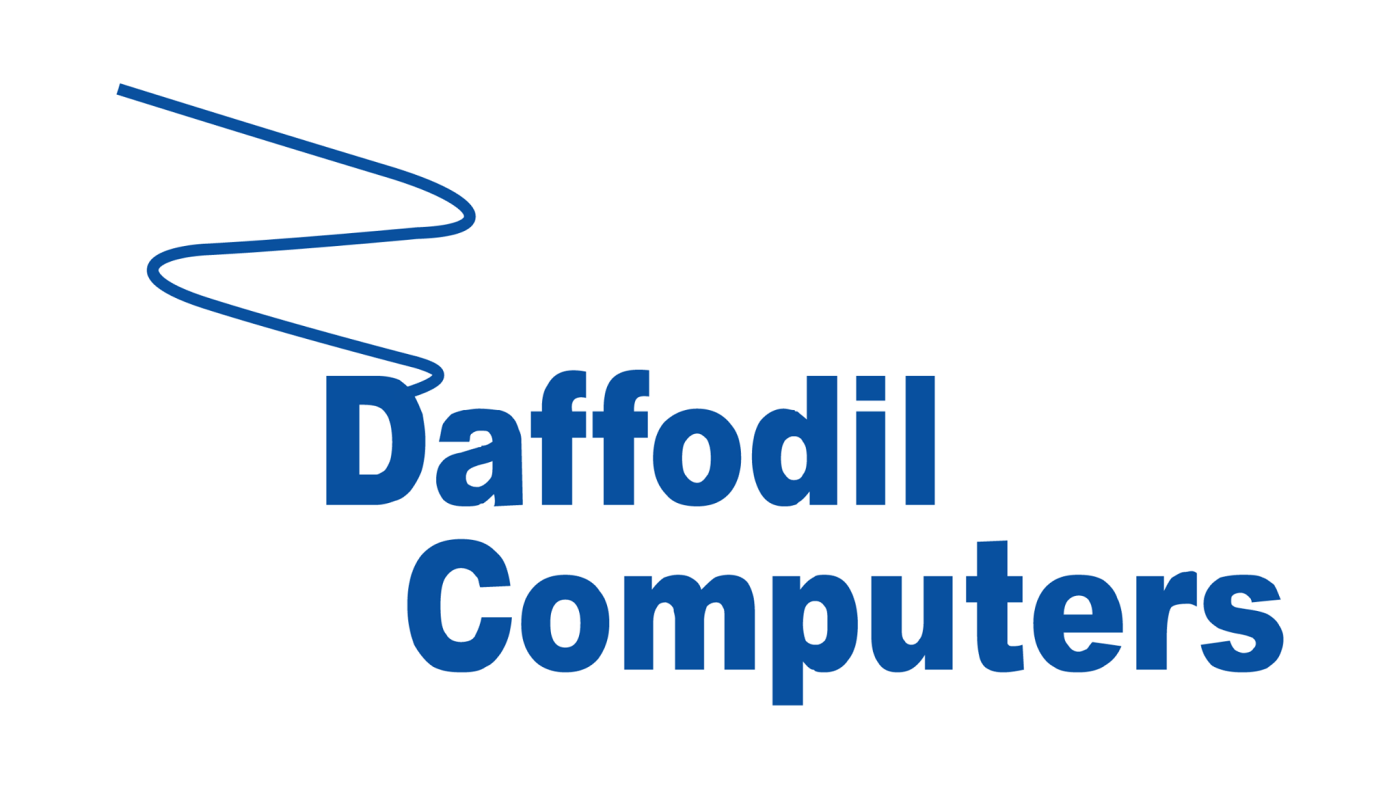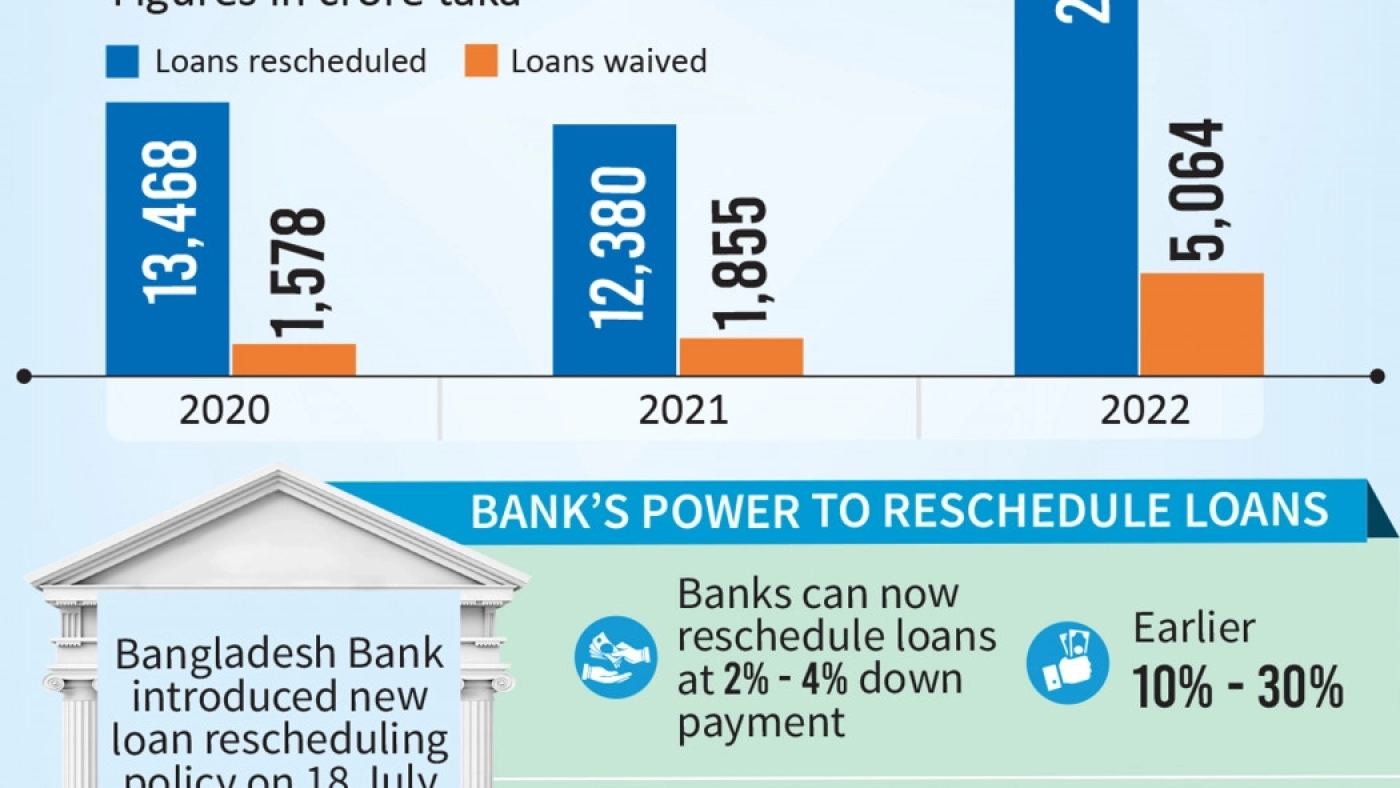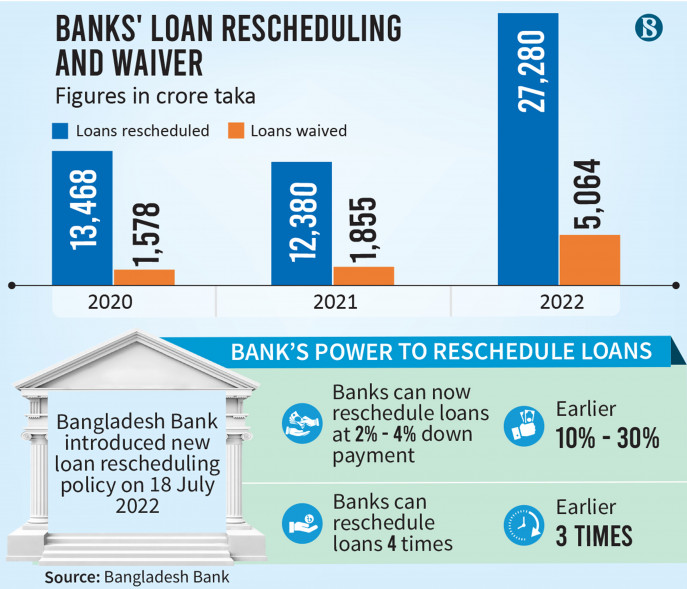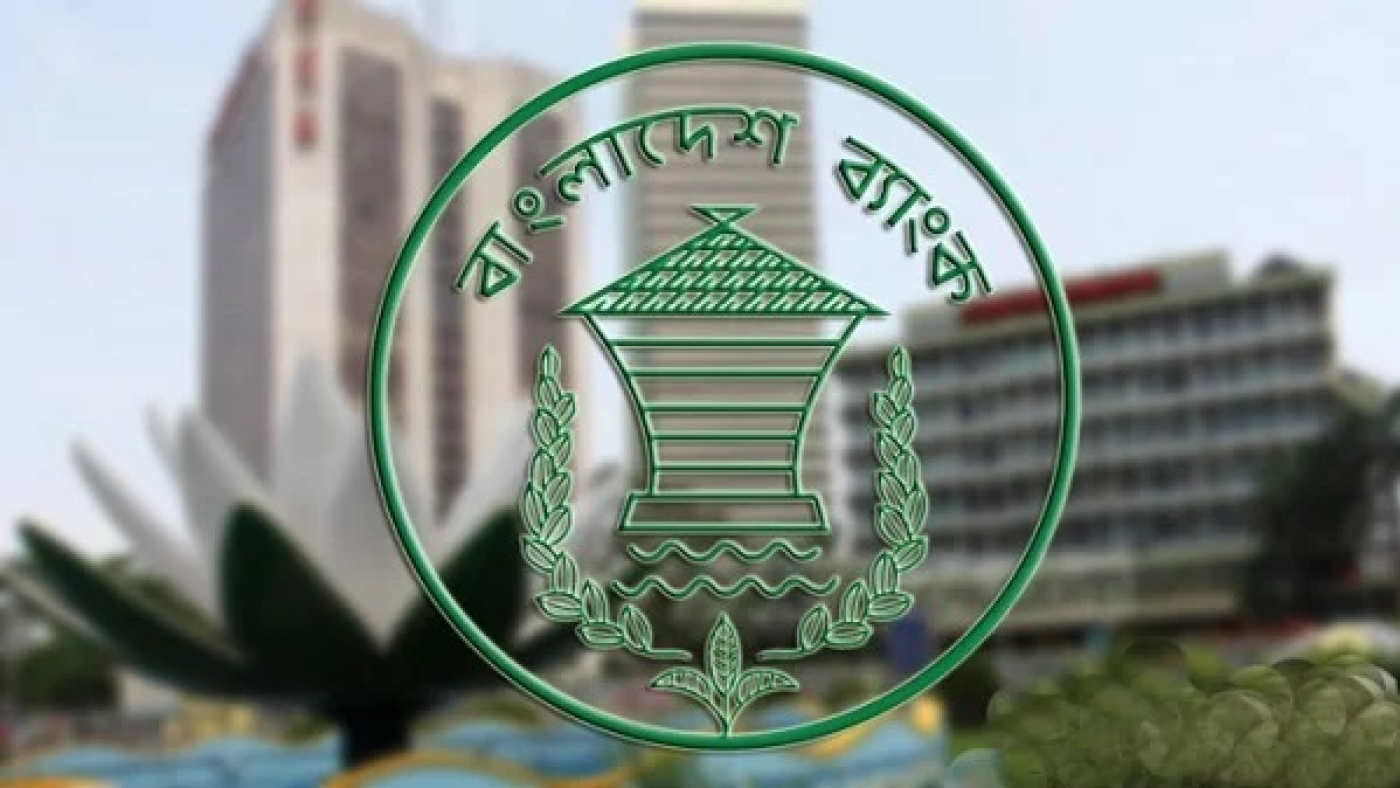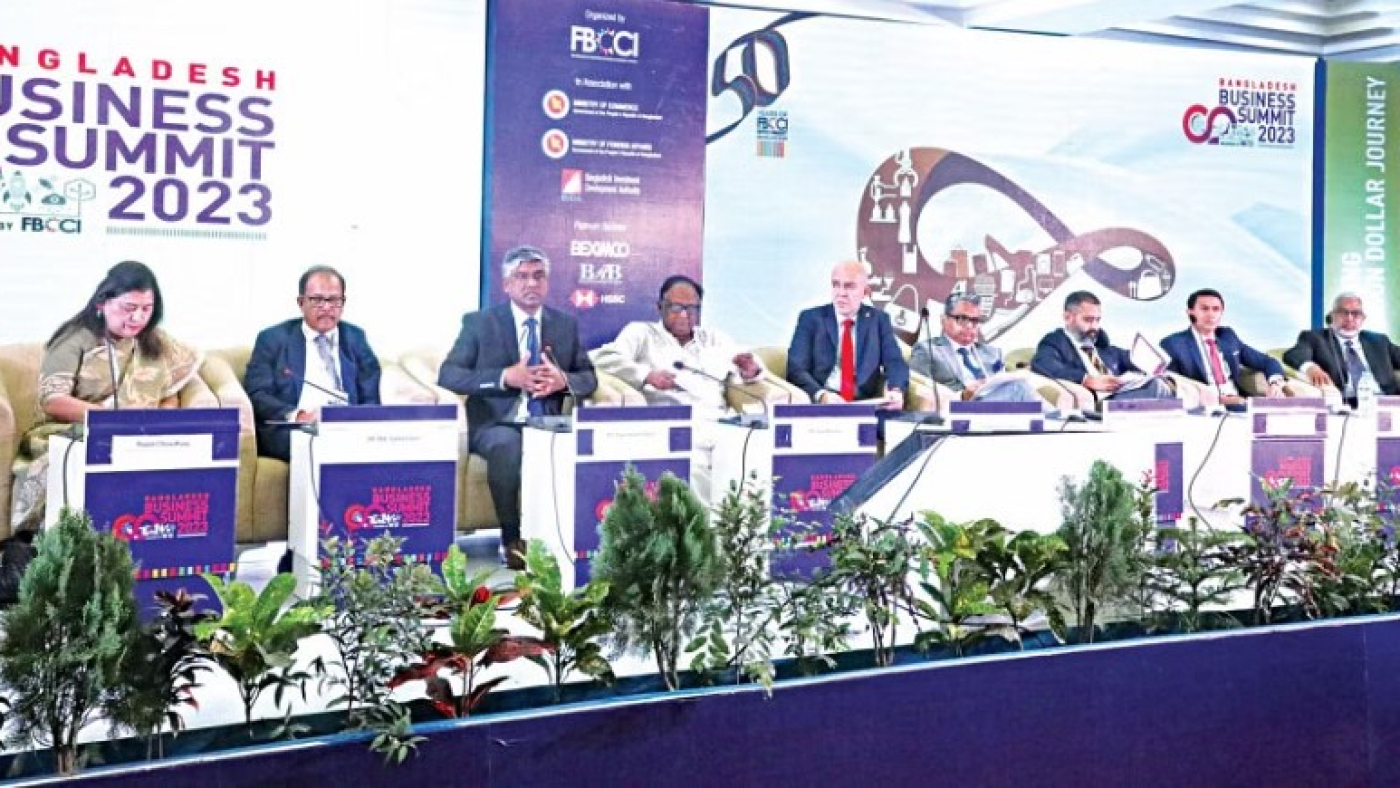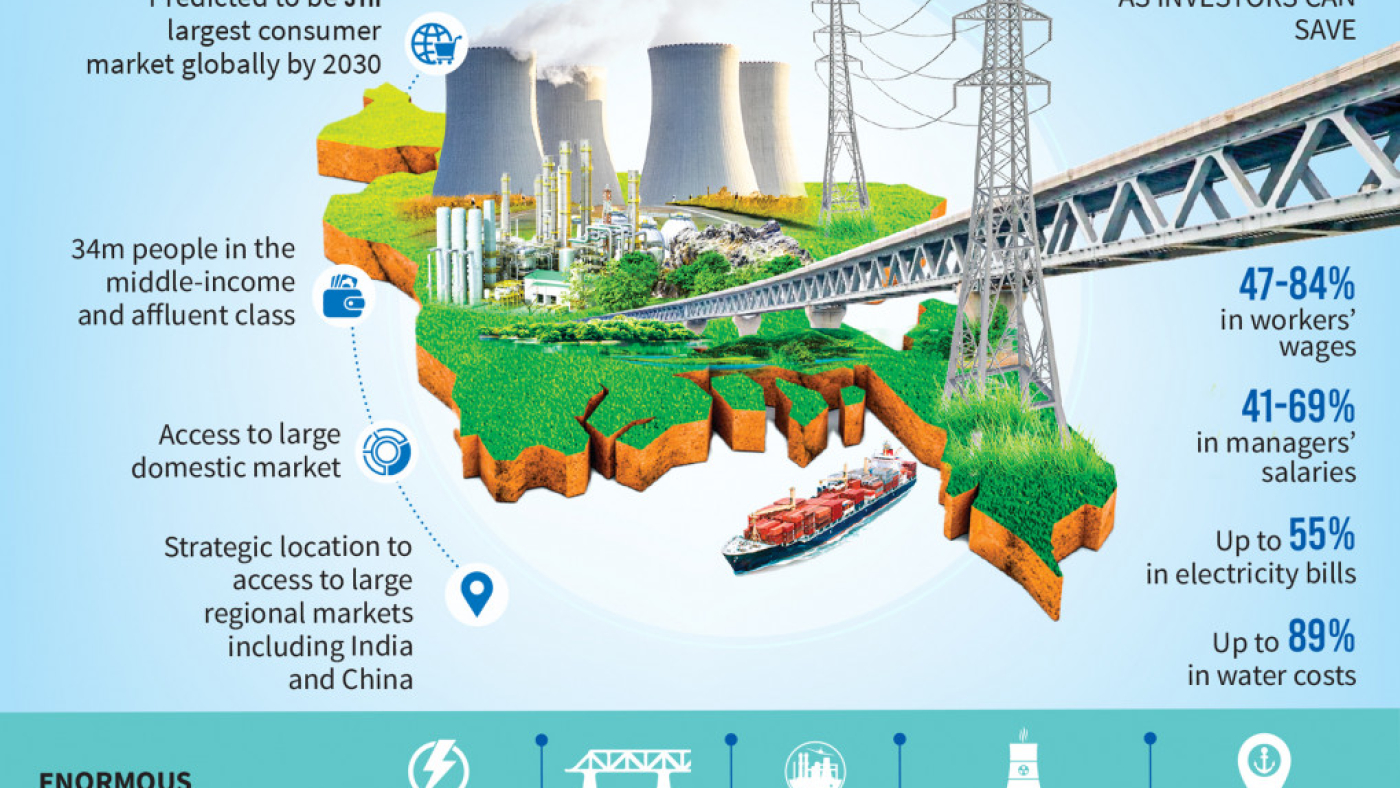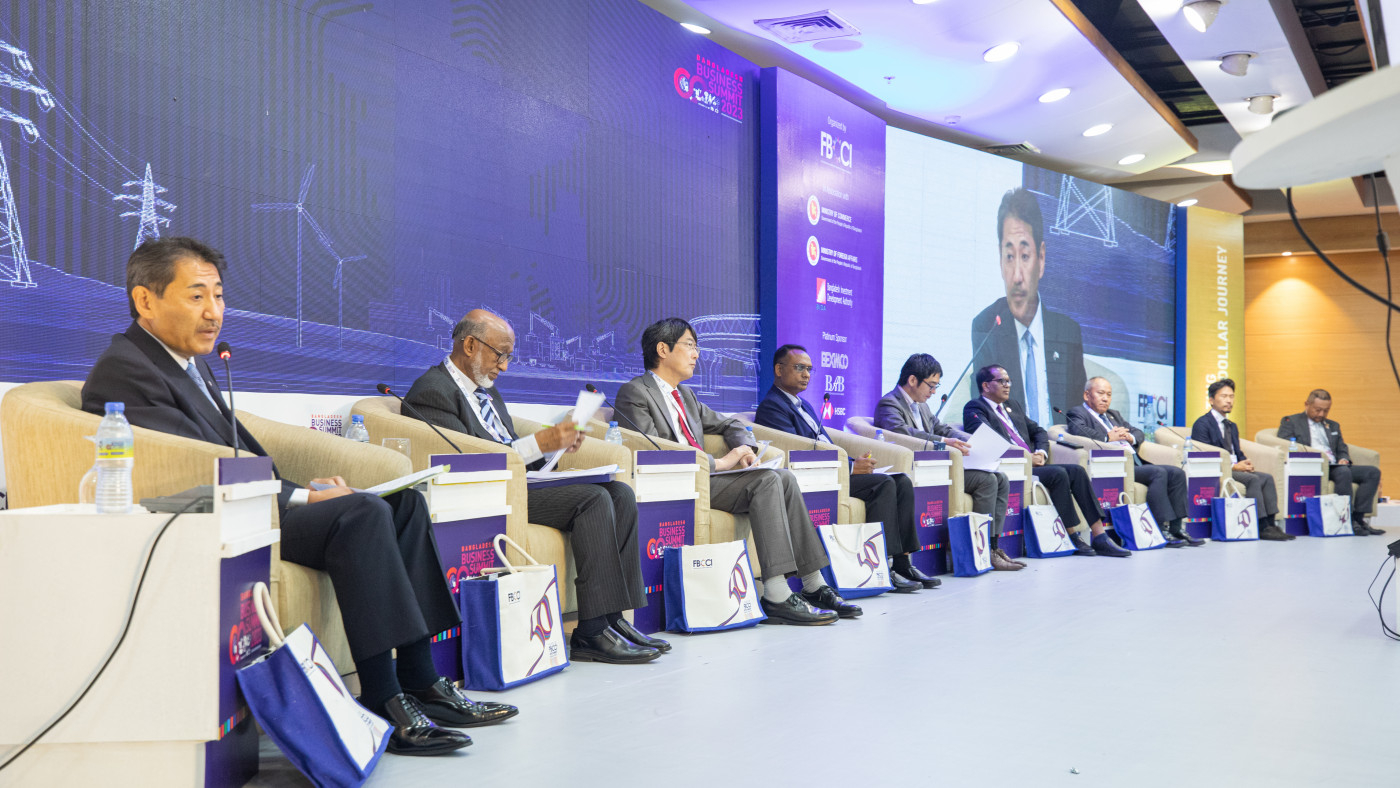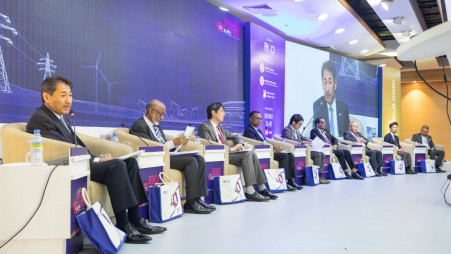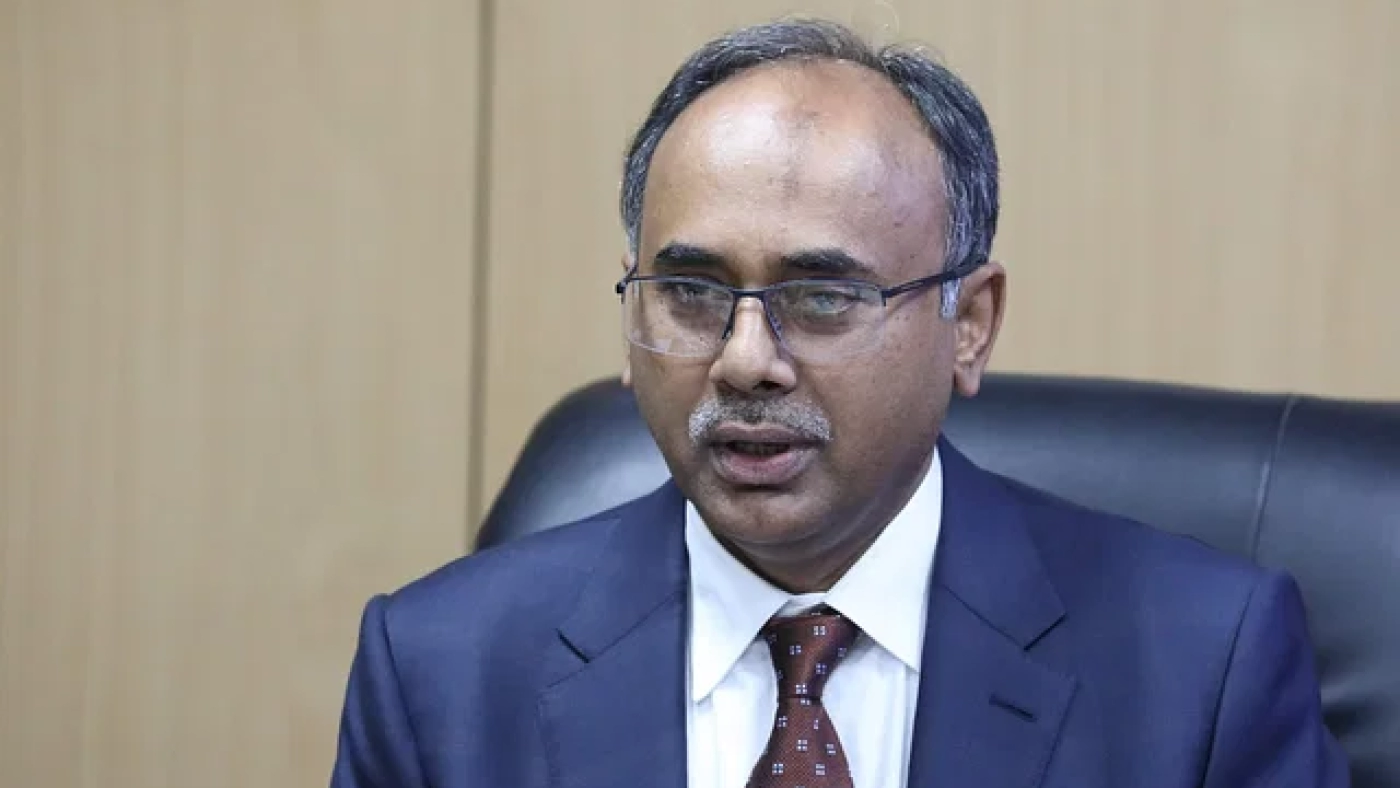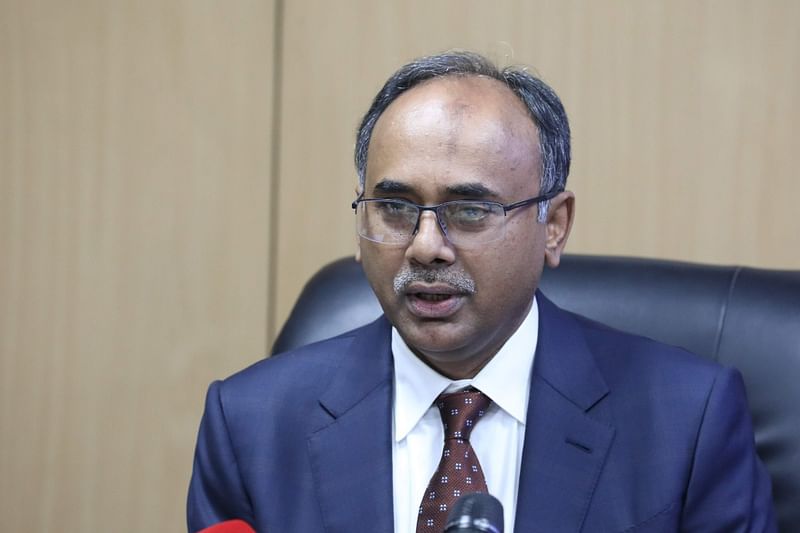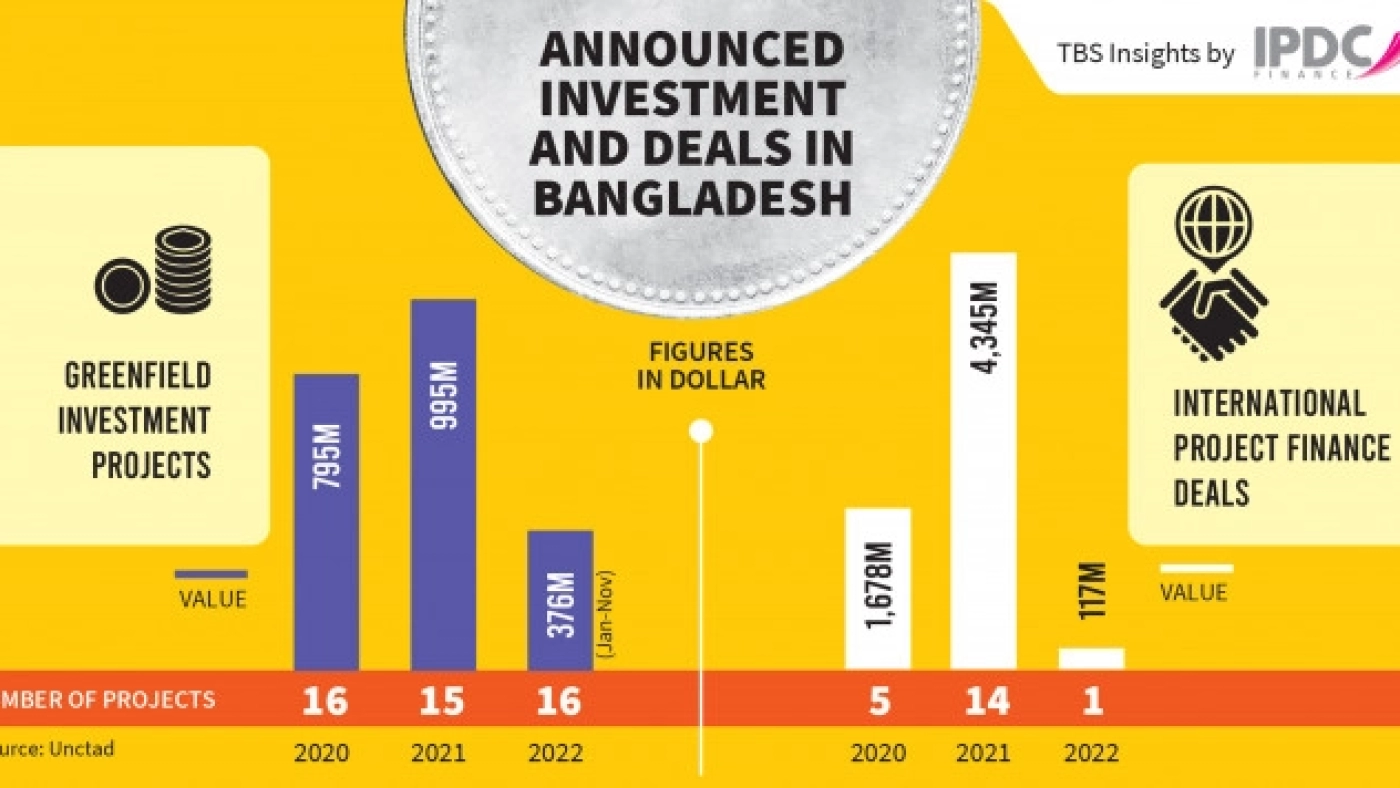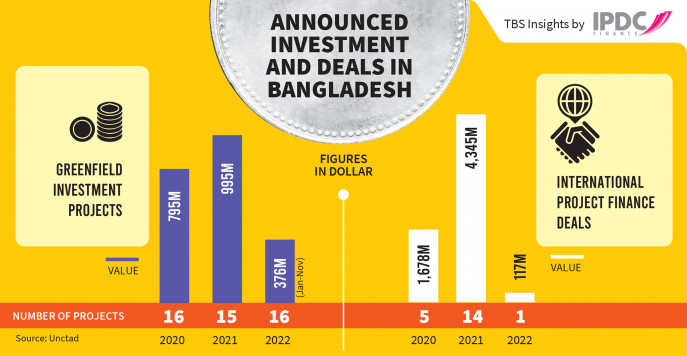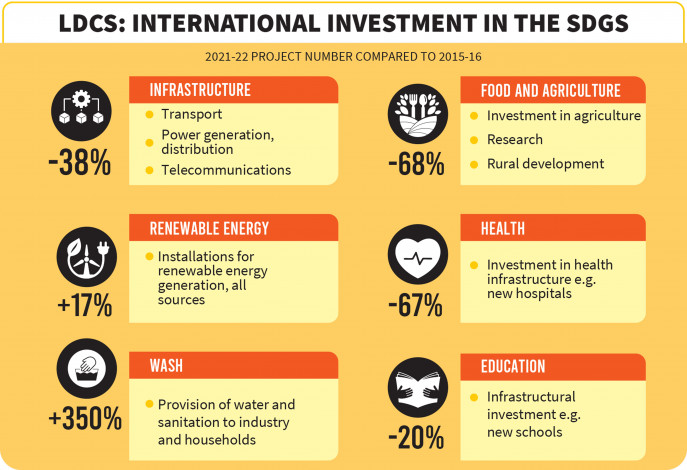Enormous infrastructure development is among the key factors that policymakers have highlighted to portray Bangladesh’s conducive investment ecosystem to attract as much as $100 billion in diversified sectors ranging from apparel to healthcare and logistics.
A huge domestic market of 170 million people, access to the regional market of 1 billion consumers, higher rate of working age population also make Bangladesh a viable investment destination, they listed at a session on the second day of the three-day Bangladesh Business Summit 2023 organised by the Federation of Bangladesh Chambers of Commerce and Industry (FBCCI).
The government is working on to establish 100 economic zones by 2030, which will provide a solid foundation for private sector growth, while the Matarbari deep-sea port, once completed in 2026, would be the real game-changer, Salman F Rahman, private industry and investment adviser to Prime Minister Sheikh Hasina, told the session.
The Padma Bridge linking the south-west of the country to the northern and eastern regions, and the establishment of 28 hi-tech and software parks, 100% electricity coverage, nuclear power plants and ongoing road and rail projects will help Bangladesh achieve foreign direct investment targets, he added.
Opening the session titled “Bangladesh: $100 billion investment opportunities in key sectors for investors to leverage”, Prime Minister’s Principal Secretary Mohammad Tofazzel Hossain Miah explained Bangladesh’s dream to become the “next manufacturing and digital hub in Asia” as he sees a lot of potentials for investment in varied sectors.
Bangladesh has had a strong track record of accelerating its GDP growth by at least 100 basis points every decade and it keeps thriving more with the help of the policies for deregulations, greater economic liberalisation and trade integration, he pointed out.
Steps have been taken to ease business and red tape, and 150 services of 34 agencies are being identified for process simplification. Once completed, clients will be able to receive these services from a single point, making it easier for businesses to operate in Bangladesh, policymakers said, elaborating on the privileges offered for investors.
According to Salman’s presentation, of the $100 billion investment opportunities in Bangladesh, $25 billion can be invested in infrastructure, over $14 billion in green investments, $24 billion in PPP investment, and $15 billion in logistics. Additionally, there is a strong appetite for foreign investments in various other sectors, including apparel industries, healthcare, digital economy, and more.
State Minister for Foreign Affairs Shahriar Alam said investors should anticipate even greater growth in the coming years as a number of mega-projects have already begun to significantly contribute to the national GDP.
In addition to its economic progress, Bangladesh has made significant strides in the areas of labour rights and human rights, he said.
Also, Bangladesh has also made significant improvements in sustainability, said the state minister. Currently, 67 of the top 100 green textile factories are located in Bangladesh, reflecting the country’s efforts to learn from past mistakes and prevent the terrible incidents that occurred a decade ago.
Additional strengths of Bangladesh
The country’s attractive geographic location enables companies secure access to the Asia Pacific market of 290 crore (2.9 billion) people who spend $8.53 trillion a year. The country has GSP facilities in 38 countries – including 28 in the EU, Australia, Canada, Japan, New Zealand, Norway, Russia, Switzerland and Turkey. In addition to Europe and USA, Bangladesh has preferential trade access in both the Chinese and Indian markets.
Meanwhile, Bangladesh, already emerging as a home to 29 million middle and affluent class consumers and set to have 34 million by 2025, thanks to the 12.3% compounded annual growth rate. The country is going to be the ninth largest consumer market by 2031, according to HSBC.
Lastly, it’s worth noting that Bangladesh offers a significant advantage in terms of cheap labour. With 68.4% of its population within working age, and a median age of 28 years for Bangladeshi citizens, the country has a younger workforce compared to India (29 years), Indonesia (31 years), Vietnam (22 years), and Thailand (39 years).
The country has bilateral investment treaties with 32 countries, double taxation avoidance treaties with 28 countries; investment here is protected by the laws against nationalisation and expropriation, while it allows 100% foreign ownership in almost every sector – all positives for FDI.
Alongside the solid macroeconomic fundamentals, Dhaka offers cost competitiveness which will help investors save hugely in worker wages, managers’ salary, water and electricity costs compared to regional peers.
What foreigners and businesses say
Calling Bangladesh the next China in his book a few years back, Jong Won Kim, the Director General of the Green Growth Department at the Korea Trade-Investment Promotion Agency, said Bangladesh is going to be a manufacturing hub.
He said Korean companies which missed the investment opportunities in Vietnam earlier and are looking to relocate factories from China or from somewhere else should consider investing in Bangladesh.
In a video message, Yasutoshi Nishimura, the Minister of Economy, Trade and Industry of Japan, revealed that approximately 70% of Japanese companies operating in Bangladesh are keen to expand their investment by establishing one to two more units.
The UK’s Indo-Pacific Minister, Anne-Marie Trevelyan, anticipates increased British investment in sectors such as higher education and financial services.
Bjarke Mikkelsen, CEO of Daraz, noted that investing in Bangladesh has become more predictable, whereas a decade ago, it was akin to gambling.
Khalid Quadir, founding managing partner of Brummer & Partners (Bangladesh), said Bangladesh can be the mini-China as it can attract foreign investors due to having cheap labour.
He said the global private capital market size is $8 trillion, of which 20% allocated for emerging countries. But Bangladesh is still not focusing on the private capital market and running after traditional funding from multilateral donors like the World Bank and the IMF.
Challenges
Inadequate infrastructure, red tape and corruption, poor immigration and customs and lack of skilled labour are the main challenges investors pointed out at different sessions of the summit on Sunday.
Takeshi Mamiya, Managing Executive Officer of Marubeni ASEAN Pet. Ltd, presented a paper at a session where he said Bangladesh is set to graduate from LDC status by 2026, and entering into the Economic Partnership Agreement (EPA) with Japan is crucial for the continued development of its textile industry.
“Attracting FDI is the common goal of most countries in order to create local employment and economic growth; however, it is not something achievable overnight,” he said.
Arif Khan, vice chairman of Shanta Asset Management, said foreign investors are not willing to come because they want a predictable policy for at least five years about remitting money, stable exchange rate and interest rate.
Source: The Business Standard



